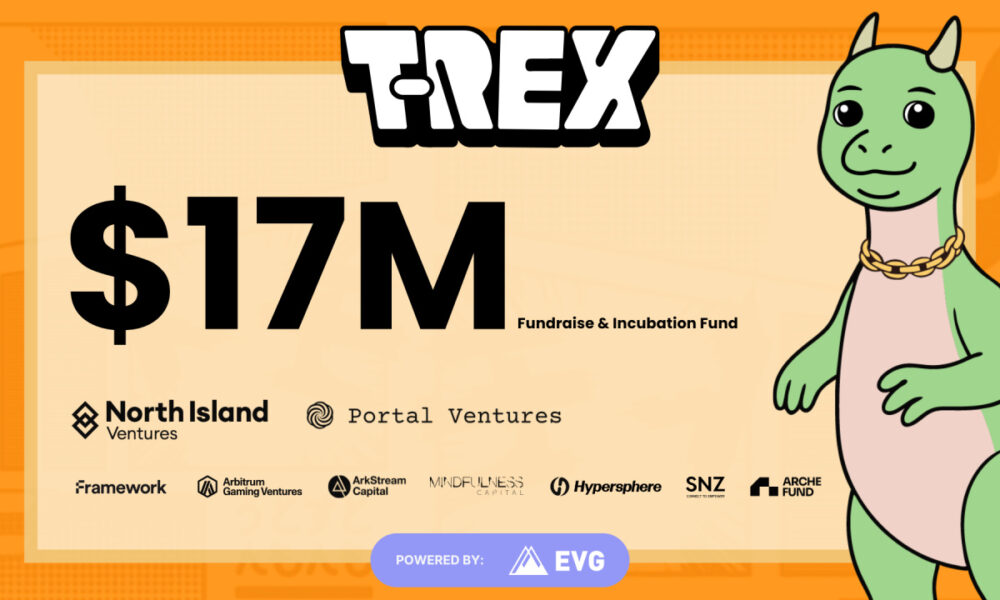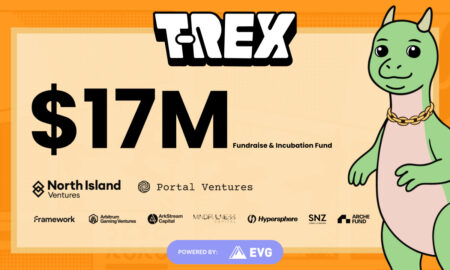An expert in politics, technology, and startups, former politico Daniel Korski has left the world of governmental and foreign affairs to pursue entrepreneurial ventures all over Europe. Today, his mission is to build businesses and initiatives that make a difference to others.
Here, the serial entrepreneur and investor tells his international politics success stories. He also shares strategies for aspiring entrepreneurs who hope to buy, develop, and sell businesses.
Daniel Korski’s Most Exciting Part of Working in Politics
For Korski, the opportunity “to make a huge impact in a small way” is the most exciting part of working in politics. Those who work in this space can “affect so many lives,” which often isn’t possible outside the government.
Working in the British government for several years, Korski made an impact by playing a crucial role in Britain’s digitisation efforts. When serving as the deputy head of the Prime Minister’s Policy Unit, he managed several digital initiatives. His experience managing these initiatives now underpins his expertise as an investor in corporate businesses.
The initiatives Korski managed include:
- Innovate Finance: the UK’s independent financial technology industry body.
- TechCity: the British digital technology industry’s biggest community-driven research project.
- The D5: a network of five leading digital governments that leverage technology to improve citizens’ lives.
- The Government Digital Service (GDS): a Cabinet Office service that protects the user experience of the digital government.
- Pitch 10: an event for promising digital companies that David Cameron held in 2014.
Korski was also the chief architect behind the government’s Digital Economy Act 2017. His efforts have helped shape the UK into a fintech centre.
Daniel Korski’s Most Challenging Part of Working in Politics
Working in the political space comes with its challenges, too. Having held several roles in the political world, Korski found that each challenged him in different ways.
At age 29, he managed the Provincial Reconstruction Team in Iraq, reconstructing the southern part of the country: “It was an extraordinarily difficult assignment,” Korski says. “We were the most bombed base in all of Iraq.”
This assignment has been the most physically challenging of his career so far. “It was very difficult to maintain any kind of composure or leadership,” he says.
Korski has also worked at the Prime Minister’s Office in London. As a result, he is familiar with the responsibility to “do good or prevent bad” from happening to many people. This is also challenging, as you’re “always trying to judge your intervention in the best way.”
Outside of politics, Korski is a seasoned businessperson. He notes that entrepreneurship comes with its own set of challenges. “When you’re trying to build your own business, you’re by yourself,” he says. “There’s no system, there’s no echo chamber.”
That said, as a resilient person, Korski doesn’t allow himself to feel dejected quickly. “I’m very forward-looking,” he says. “I’m always thinking about the next thing.”
He recalls an American soldier he once worked with, Commander of the 82nd Airborne, General Virgil Packett, from Alabama. The soldier told Korski, “You’ve got to have stick-to-it-iveness.”
“I really like that phrase,” Korski says. “I think I have stick-to-it-iveness. I stick to things, I deliver things.”
Understanding The Local Political and Social Climate on Assignments
Korski has moved in quick succession between countries to undertake several assignments. Moving from Bosnia to the UK, Afghanistan, Yemen, Iraq, Egypt, and Belgium, he had to quickly adapt to each country’s political and social climate. “I’m a very curious person, so I draw in information from all sorts of sources all the time,” Korski says.
He also has a “reasonably easy facility with languages.” This is unsurprising given his “international upbringing.” His Polish parents had been refugees in Sweden and Denmark, which meant he was exposed to multiple languages at home. On top of this, he learnt French, German, and Danish at school. As a result, he has been able to quickly learn the basics of various languages on assignments.
The Importance of Making Connections With Others
Aside from serving at Number 10, Korski’s many political roles have spanned from advising the Defence Select Committee in Parliament to acting as Tom Tugendhat’s leadership election campaign leader. He has secured many of his influential roles through his network.
“I’m a very proactive networker, although I’ve never thought of it in that highly clinical way,” he says. “I love talking to people. I love listening to people, getting to know people, and helping people.”
Korski has recommended several individuals for roles and has found that others have done the same for him. “I never asked for anything,” he says. “You do good by people, and good will come to you.”
Advice For Entrepreneurs: Buying, Developing, and Selling Businesses
Korski has now stepped away from his political career to pursue the acquisition, development, and sale of various businesses. He explains that two of the most difficult decisions in this process are deciding which businesses to invest in and when to sell.
Daniel Korski’s Advice on Deciding Which Businesses to Invest In
When seeking an early-stage business to invest in, prospective investors should examine the current owners as much as the business itself. Korski advises investors to ask themselves whether the business owner(s) has the grit and resilience that drive success.
“When the market or life throws them a curveball, are they able to duck and dive and still be on the road to success?” Resilient business owners are much more likely to have set up their enterprises for favourable outcomes.
From here, Korski advises investors to consider whether the business solves a real problem. This problem needs to be big enough, and the solution needs to be strong enough, that people will pay for this solution.
“There are lots of problems in the world that look big but in the end are survivable irritants,” Korski says. The businesses that succeed are the ones that solve big problems, the ones that justify buying the solution.
However, Korski emphasises that no product sells itself. Even Covid-19 vaccines, which saved people’s lives, needed massive PR campaigns. When you’ve found a business with a unique, valuable offer, you’ll still need to employ high-level marketing strategies to sell this offer.
Daniel Korski’s Advice on Deciding When to Sell a Business
Finding the best time to sell a business can also be a high-risk decision: “A lot of things are out of your hands,” Korski says. “What you think the business is worth may not be what the market thinks it’s worth.”
To complicate matters, the value of a business can change from day to day as the market shifts. For example, the value of Zoom skyrocketed during the Covid-19 pandemic, when many people suddenly became dependent on videoconferencing software.
Korski also uses the example of a designer and high street bag company producing bags at the same factory but marketing them at wildly different prices. These prices don’t reflect the intrinsic value of the bags. They reflect the market value associated with each brand. As a result, quality branding is essential to scaling a business and selling it for the highest possible price.
Entrepreneurship Is for All Ages
Korski finishes on a motivational note for aspiring business people who don’t feel they fit the entrepreneur criteria. He explains that the stereotypical image of an entrepreneur often isn’t accurate. While many people conjure up an image of a university dropout with a big idea, the average age of a startup founder in the U.S. is 42.
Entrepreneurship is “alive and flourishing” in all age groups, demographics, and areas. “In our popular culture, we’d probably do well to remind ourselves of that,” Korski says.
About Daniel Korski
As a seasoned political expert, Korski’s career in the British government has informed his extensive knowledge as an entrepreneur today. Not only has he served as the deputy head of the Prime Minister’s Policy Unit, but he has also acted as a special advisor to:
- The former Prime Minister David Cameron. Korski advised Cameron closely during the EU referendum campaign and the European negotiations that led up to the vote.
- The former Conservative Chief Whip Andrew Mitchell MP.
- The British member of the European Commission Catherine Ashton. While serving in this role, he took part in the Iran nuclear negotiations.
- Lord Paddy Ashdown during his tenure as chief of staff to the then-UN High Representative of Bosnia-Herzegovina.
International Assignments
Korski has held several positions all over the world, including in London, Yemen, and Washington DC. In 2005, he was deployed to Afghanistan to advise President Hamid Karzai’s government. Two years later, he oversaw the Provincial Reconstruction Team in Iraq.
On top of this, he undertook a secondment to the U.S. State Department under the then Secretary of State Condoleezza Rice. From here, he worked on the frontlines of the Libyan conflict and reported on this for The Spectator.
As deputy head, Korski also led the development of the cross-departmental Stabilisation Unit. Plus, he worked in Parliament as a policy advisor to the House of Commons Defence Select Committee. In addition, he played a key role in establishing the largest pan-European think tank, the European Council on Foreign Relations.
Political Reporting
As a political reporter, Korski has written for publications like The Guardian, The Spectator, The New York Times, Süddeutsche Zeitung, and European Voice.
Education
Korski holds an MPhil in International Relations from the University of Cambridge. He also holds a first-class BSc in International Relations and History from the London School of Economics.
Learn more about Daniel Korski.



































